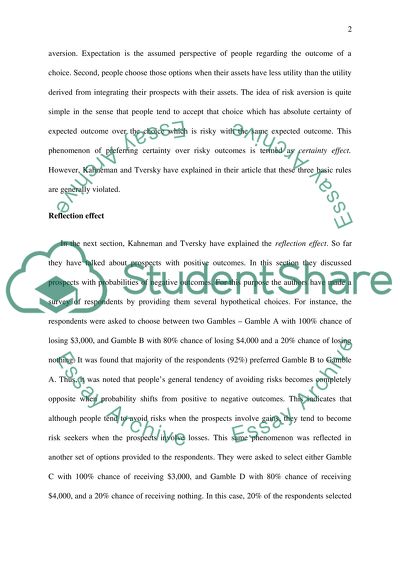Prospect Theory and Utility Theory Book Report/Review - 1. Retrieved from https://studentshare.org/finance-accounting/1680057-prospect-theory-and-utility-theory
Prospect Theory and Utility Theory Book Report/Review - 1. https://studentshare.org/finance-accounting/1680057-prospect-theory-and-utility-theory.


